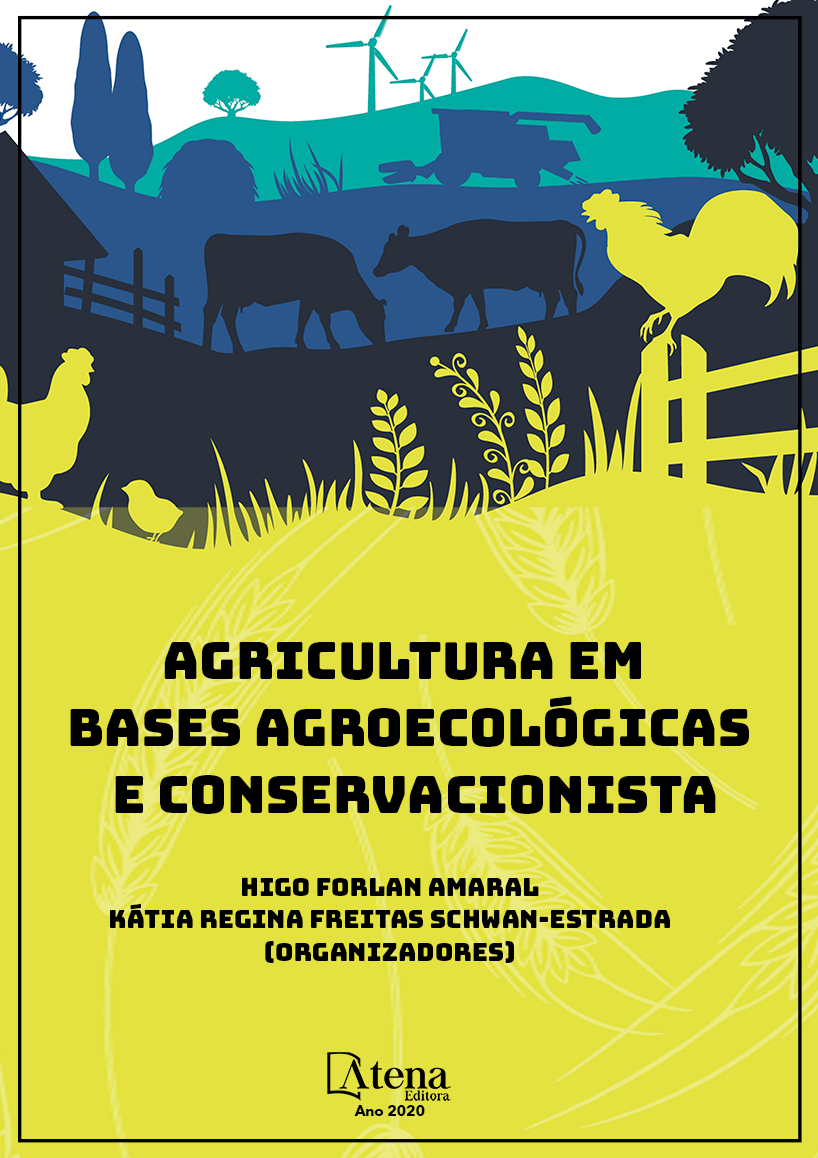
PROCESSO DE REGULARIZAÇÃO DA PRODUÇÃO AVÍCOLA CAIPIRA EM ASSOCIAÇÃO DE PRODUTORES AGROECOLÓGICOS DO NORTE CENTRAL PARANAENSE
A avicultura brasileira está entre as
mais desenvolvidas do mundo. Para alcançar
esse status, muito trabalho técnico-científico
foi desenvolvido, visando o estabelecimento
de regras e legislações capazes de suportar o
comércio nacional e internacional de produtos
avícolas. As aves caipiras se inserem neste
contexto no mercado interno, produzindo carne
e ovos que tem grande demanda social e
apelo culinário, mas o mercado não tem sido
abastecido com oferta legalizada suficiente
destes produtos. Pequenas propriedades
rurais vêm desenvolvendo a atividade avícola
comercial irregularmente, sem atendimento à
base legal, o que limita o sucesso da atividade.
Este trabalho propôs conhecer os pontos críticos
da produção, assim como iniciar o processo de
regularização de uma associação de produtores
agroecológicos do norte paranaense. Para
isso, foi utilizada a metodologia de pesquisa
de campo exploratória descritiva, com
observação sistemática e participante, por meio
de formulários semiestruturados aplicados
em 15 núcleos de produção avícola caipira
familiar. A partir destes resultados, foram
tomadas medidas de educação sanitária para
reversão deste quadro geral de informalidade
da associação. Ao final do ciclo de um ano de
trabalho alcançou-se 77,33% de conformidades
dos parâmetros legais em todos os núcleos
avícolas, sendo que 08 núcleos (53 %) foram
considerados aptos à submissão ao processo
de certidão de registro avícola comercial, junto
ao serviço de defesa agropecuária paranaense.
Observou-se uma correlação significativa
(P<0,05%) favorável entre a aptidão ao padrão
legal dos núcleos avícolas e as variáveis de
dependência financeira do produtor, assim
como o tempo em que o produtor desenvolve
a avicultura. Os formulários, aliados às ações
de educação sanitária e ao conhecimento
da realidade produtiva, demonstraram-se
ferramentas eficientes para atendimento aos
requisitos legais.
PROCESSO DE REGULARIZAÇÃO DA PRODUÇÃO AVÍCOLA CAIPIRA EM ASSOCIAÇÃO DE PRODUTORES AGROECOLÓGICOS DO NORTE CENTRAL PARANAENSE
-
DOI: 10.22533/at.ed.07220210217
-
Palavras-chave: Avicultura; Educação Sanitária; Informalidade; Sanidade Avícola.
-
Keywords: Poultry Production; Informality; Health Education; Poultry Health.
-
Abstract:
The Brazilian poultry production is among the most developed of the world.
To reach such status it was necessary to develop scientific and technical work to support
the necessary regulations for the national and international market of poultry products.
In Brazil, free-range poultry are included in this context, producing meat and eggs that
have great social demand and culinary appeal, but are short in legalized suppliers for
these products. Small rural properties have been developing the commercial poultry
activity irregularly, without attendance to the legal base, which limits the success of
the activity. The work proposed to know the critical points of the production, as well as
to begin the process of regularization in an association of agroecological producers of
the northwest of Paraná. For this, it was used the descriptive exploratory field research
methodology, with systematic and participant observation, through semi-structured
forms applied in 15 nucleus of poultry family production. Based on these results, health
education measures were taken to reverse this general informality in the association,
where at the end of the one-year work cycle, 77.33% of the legal parameters were
reached in all poultry nucleus, being that 08 nucleus (53%) were considered fit to submit
to the commercial poultry registration certificate process, together with the Paraná
agricultural defense service. There was a significant (P <0.05%) favorable correlation
between the suitability to the legal standard of the poultry cores and the variables of
financial dependence of the producer, as well as the time that the producer develops
the aviculture. The forms, allied to the actions of sanitary education and knowledge
of the productive reality, have demonstrated to be efficient tools to meet the legal
requirements.
-
Número de páginas: 15
- Eric Waltz Vieira Messias
- Alessandra Aparecida Silva
- Lucimar Pontara Peres
- Bruno


